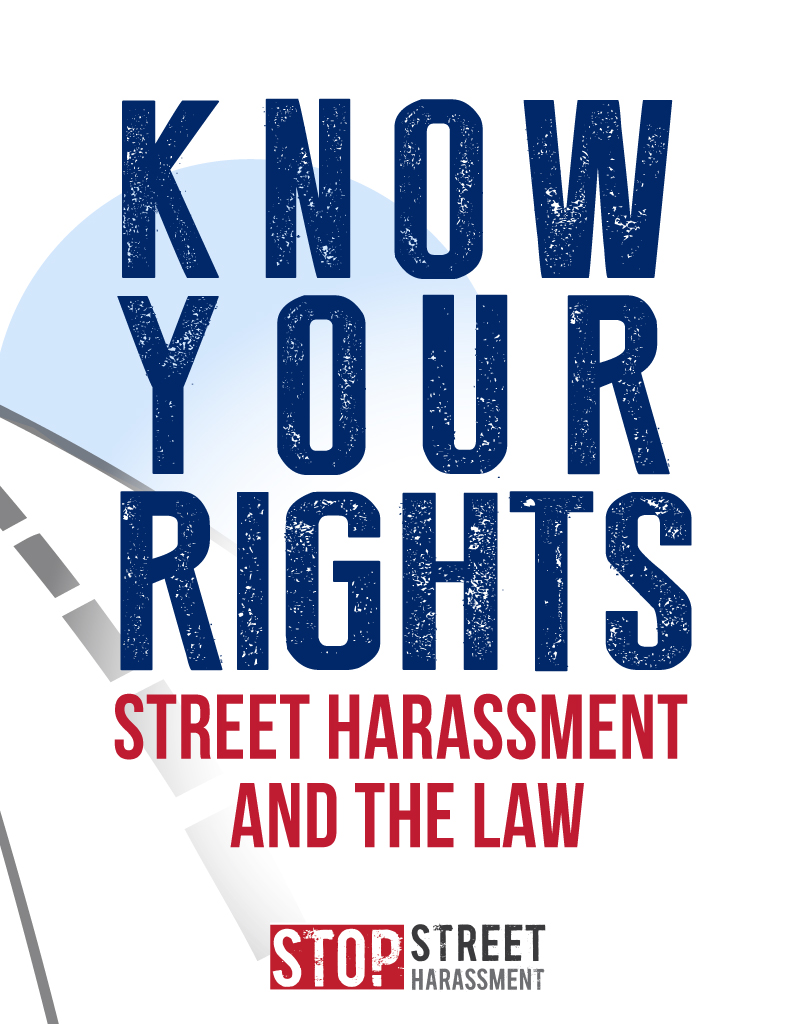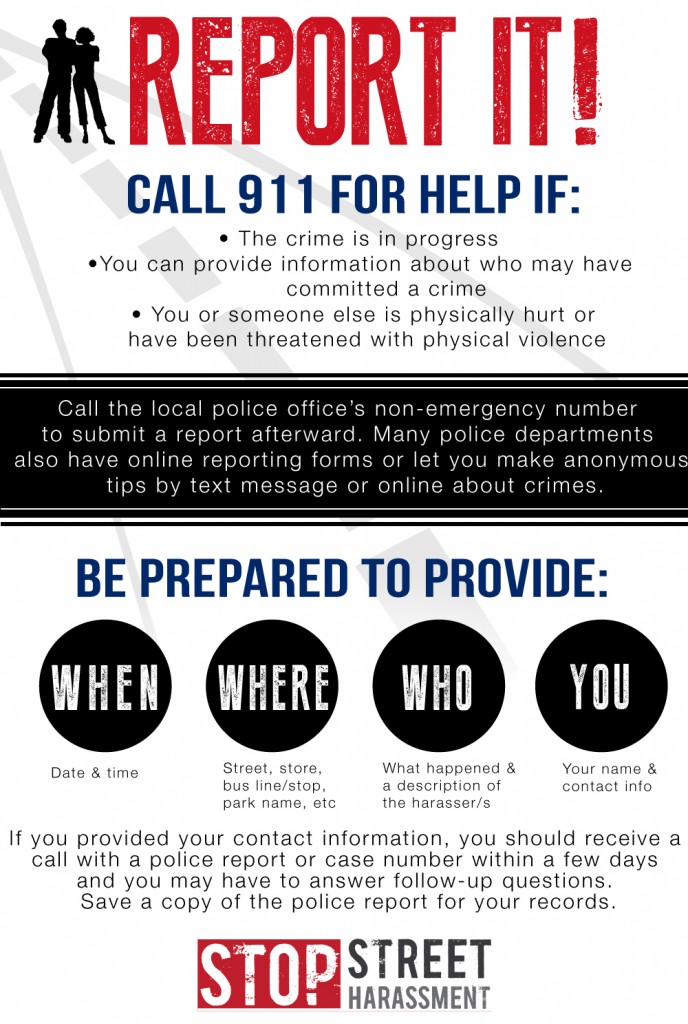 Whether to report street harassment can be a difficult choice. You may feel that what happened to you wasn’t that serious, worry that police won’t believe you or won’t do anything about it, or that, for a variety of reasons, you’ll face more harassment by engaging police than by just getting on with your life.
Whether to report street harassment can be a difficult choice. You may feel that what happened to you wasn’t that serious, worry that police won’t believe you or won’t do anything about it, or that, for a variety of reasons, you’ll face more harassment by engaging police than by just getting on with your life.
At Stop Street Harassment, we believe that however you respond to street harassment — whether you report it, ignore it, or deal with the harasser directly — is a valid choice; there is no best way to deal with harassers. But if you choose to report street harassment — especially serious violations like indecent exposure, following, or groping — there can be several positive outcomes.
Reasons to Report
* It can give you a sense of justice and empowerment.
* It may prevent future acts of harassment or more severe crimes.
* It can help raise awareness about how upsetting and inappropriate street harassment really is.
When to Report
You can report an act of street harassment as it happens, by calling 911 on the scene, or after the incident.
* The chances that a street harasser will be apprehended are greatest during and immediately after the incident.
* But if you decide later that something should be reported, you can still call your local police non-emergency number or file a report online.
What to Report
To make reporting easier — and to increase the chances that police take you seriously — on each state page we’ve provided the names of each crime that applies to street harassment so that you can give police the most exact information possible. For example, you can say, “I’d like to report someone for disorderly conduct,” or “sexual battery.”
If you do report an incident of street harassment or think you might want to report it later, it helps to:
 * Make sure you’re safe before you do anything else.
* Make sure you’re safe before you do anything else.
* Take a deep breath. Try to stay calm. Street harassment is never your fault, and you’re doing the right thing.
* If the crime you’re reporting is in progress, call 911. If it has already happened, call your local non-emergency number.
* Ask anyone who saw the incident — whether a friend or a stranger — if s/he would be willing serve as a witness for police. Take down his or her contact information and include it in your report.
* Write down everything you remember, including the time and place of the incident, what the harasser did and said, and a physical description of the harasser (eye color, hair color, approximate height and build, age, etc.). Details can fade from your mind quickly, so even if you aren’t sure you’ll report something, it’s a good idea to make thorough notes of what happened.
* If you do speak to an officer, try not to be intimidated. It’s his or her job to ask you a lot of questions. Do your best to answer them, and know that you can always follow up with more information later.
* If an officer does ask what you were wearing, why you were out alone, or another irrelevant or victim-blaming question, it’s ok to (politely) say, “I don’t think that’s relevant, sir/ma’am. The harasser was wearing…”
Also, it’s important to note that many states have provisions that punish repeated behavior more severely. You may not know when a street harasser is a repeat offender, or is about to become one.
* Many states also punish street harassment and sexual harassment more severely if the offender is a government employee or the victim is a minor.
* If you are under 18 or you witness harassment of a young person or child, this is important information to report to the police.
